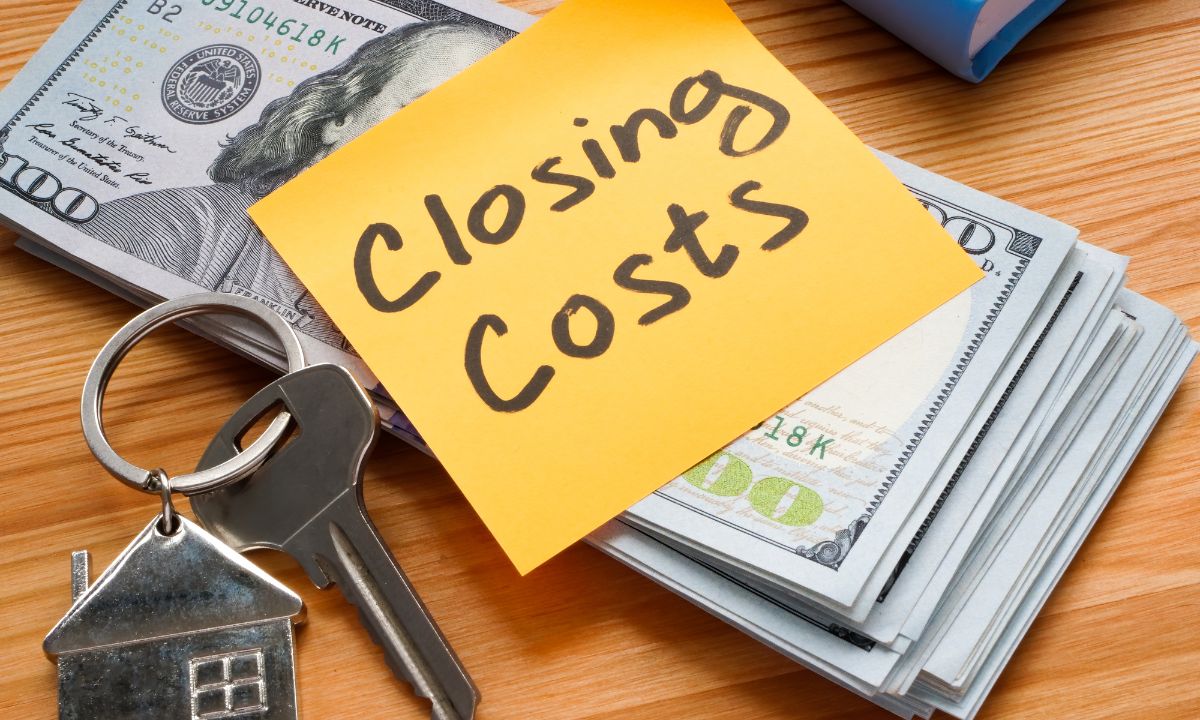 Buying a home is an exciting journey, but it’s not without its twists and turns. One specific daunting aspect for many homebuyers is understanding the sphere of closing costs. These additional expenses can catch even the most prepared buyers off guard if they’re not properly understood. So, let’s discuss the world of closing costs and shed some light on what to expect when purchasing your dream home.
Buying a home is an exciting journey, but it’s not without its twists and turns. One specific daunting aspect for many homebuyers is understanding the sphere of closing costs. These additional expenses can catch even the most prepared buyers off guard if they’re not properly understood. So, let’s discuss the world of closing costs and shed some light on what to expect when purchasing your dream home.
Appraisal Fees: Before finalizing a mortgage, lenders typically require an appraisal to ensure the property’s value aligns with the loan amount. Appraisal fees can vary depending on the size and location of the property but generally range from a few hundred to a thousand dollars. It’s crucial to budget for this expense as it’s a non-negotiable part of the home-buying process.
Title Insurance: Protecting your ownership rights is paramount when purchasing a home. Title insurance safeguards against any issues with the property’s title, such as liens or disputes, that may arise after the purchase. While it might seem like an added expense, the peace of mind it provides is invaluable. Title insurance costs vary but typically amount to around 0.5% to 1% of the home’s purchase price.
Home Inspection Fees: Hiring a qualified home inspector is essential for uncovering any potential issues with the property before closing the deal. While not always mandatory, a home inspection can save you from costly surprises down the road. Inspection fees can range from $300 to $500 on average, depending on the size and complexity of the home.
Closing Agent Fees: A closing agent, often an attorney or a title company representative, facilitates the closing process and ensures all necessary documents are properly executed. Their fees cover administrative tasks, document preparation, and overseeing the closing proceedings. Closing agent fees vary but typically amount to around 1% to 2% of the home’s purchase price.
Property Taxes and Insurance: Depending on when you close on your new home, you may be required to prepay property taxes and homeowners insurance for the upcoming year. These expenses are typically prorated based on the closing date and can add a significant amount to your closing costs.
Origination Fees: Charged by the lender, origination fees cover the cost of processing your mortgage application and underwriting the loan. These fees can vary widely but generally range from 0.5% to 1% of the loan amount. It’s essential to shop around and compare origination fees when selecting a lender to ensure you’re getting the best deal.
Escrow Fees: If you opt to use an escrow service to hold funds and coordinate the closing process, you’ll likely incur escrow fees. These fees cover the cost of managing the escrow account and ensuring all parties fulfill their obligations. Escrow fees typically amount to around 1% of the purchase price but can vary depending on the complexity of the transaction.
Navigating the realm of closing costs can feel overwhelming, but understanding what to expect can help alleviate some of the stress associated with buying a home. By budgeting for these expenses and working closely with your real estate agent and lender, you can approach the closing table with confidence and excitement as you take the next step toward homeownership.

 Are you considering purchasing a property governed by a Homeowners Association (HOA)? If so, you’ve probably come across the term “HOA fees.” What exactly are these fees, who pays them, and why are they necessary?
Are you considering purchasing a property governed by a Homeowners Association (HOA)? If so, you’ve probably come across the term “HOA fees.” What exactly are these fees, who pays them, and why are they necessary?  In today’s world, where the safety of our homes and loved ones is paramount, investing in a robust home security system is essential. Whether you’re a homeowner or renting, ensuring your peace of mind through effective security measures is achievable. Let’s discuss the essentials of home security systems and how you can fortify your home against potential threats.
In today’s world, where the safety of our homes and loved ones is paramount, investing in a robust home security system is essential. Whether you’re a homeowner or renting, ensuring your peace of mind through effective security measures is achievable. Let’s discuss the essentials of home security systems and how you can fortify your home against potential threats. Are you contemplating whether to dive into the real estate market and invest in a new construction home? It’s an exciting prospect, but like any significant decision, it comes with its own set of pros and cons. We will discuss the intricacies of this choice to help you navigate your way through.
Are you contemplating whether to dive into the real estate market and invest in a new construction home? It’s an exciting prospect, but like any significant decision, it comes with its own set of pros and cons. We will discuss the intricacies of this choice to help you navigate your way through. Are you ready to start the journey of acquiring your dream home? One of the most exhilarating yet daunting steps in this process is negotiating the deal. Whether you’re a first-time buyer or a seasoned investor, mastering the art of negotiation can make all the difference in securing your dream home at the best possible price. In this guide, we’ll explore some effective real estate negotiation strategies to help you navigate this crucial phase with confidence.
Are you ready to start the journey of acquiring your dream home? One of the most exhilarating yet daunting steps in this process is negotiating the deal. Whether you’re a first-time buyer or a seasoned investor, mastering the art of negotiation can make all the difference in securing your dream home at the best possible price. In this guide, we’ll explore some effective real estate negotiation strategies to help you navigate this crucial phase with confidence.